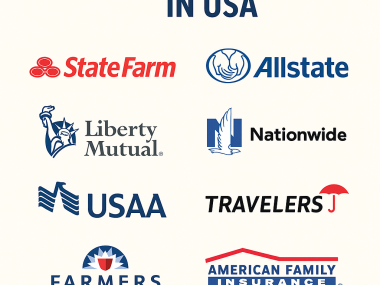KfW Loans for Small Businesses in Germany
What Are KfW Loans and Why Are They Essential for Small Businesses in Germany?
KfW Loans for Small Businesses in Germany! If you’re a small business owner or aspiring entrepreneur in Germany, navigating the world of business financing can feel overwhelming. One standout solution trusted by thousands of German businesses is the KfW loan — a government-backed financing option offering favorable terms and high flexibility.
KfW loans are issued by KfW Bankengruppe, a German state-owned development bank. These loans are specially crafted to support small and medium-sized enterprises (SMEs), as well as startups, by offering accessible funding tailored to their unique financial needs.
Whether you’re looking to fund a startup, expand operations, invest in green technologies, or boost innovation, KfW provides a suite of financial tools to help businesses thrive.
Why Choose KfW Loans? Key Benefits for Small Business Owners
KfW loans come with several attractive advantages, particularly suited for SMEs:
- ✅ Low interest rates subsidized by the government.
- ✅ Long repayment periods with grace periods on request.
- ✅ Flexible eligibility criteria, making them accessible even to new ventures.
- ✅ No direct competition with private banks, as KfW collaborates with them.
- ✅ Focused support for innovation, sustainability, and digitalization.
Compared to conventional loans, KfW financing offers an inclusive and empowering pathway for businesses that might not otherwise secure funding through traditional lenders.
Types of KfW Loans Available for Small Businesses in Germany
Choosing the right KfW loan depends on your business goals. Here are the most relevant types of KfW loans for small businesses in Germany:
1. KfW Entrepreneur Loan (KfW-Unternehmerkredit)
Designed for existing businesses and freelancers, this loan supports both working capital and investment needs.
- Use Cases: Equipment purchases, marketing campaigns, product development.
- Benefits: Up to €25 million in financing, with low-interest rates and terms up to 20 years.
2. KfW Start-up Loan – StartGeld
Perfect for startups and small-scale entrepreneurs, this loan covers early-stage capital requirements.
- Use Cases: Starting a business, acquiring assets, marketing.
- Benefits: Up to €125,000 financing, no collateral for up to €30,000.
3. KfW Working Capital Loan (KfW-Kredit für Wachstum)
For businesses that need to strengthen their liquidity or cover operational costs.
- Use Cases: Inventory, payroll, short-term cash flow needs.
- Benefits: Flexible repayment terms with an option for interest-only periods.
4. KfW Innovation Loan
Encourages forward-thinking companies to invest in new technologies and digital transformation.
- Use Cases: Research & development, new product creation, IT infrastructure.
- Benefits: Loans with partial exemption from liability and innovation grants.
5. KfW Energy Efficiency Loan
For businesses focusing on sustainability, this loan supports eco-friendly improvements.
- Use Cases: Energy-efficient machinery, green building renovations.
- Benefits: Special incentives, long repayment periods, and repayment-free start-up years.
6. ERP Capital for Startups (ERP-Kapital für Gründung)
Specifically geared toward startup capital requirements, this loan supports innovation-driven founders.
- Use Cases: Seed investment, software development, first-year costs.
- Benefits: No collateral required, 100% liability assumption by KfW.
How to Apply for a KfW Loan in Germany: Step-by-Step Guide
Applying for a KfW loan isn’t overly complex, but preparation is key. Here’s how to streamline your application:
Step 1: Prepare a Business Plan
Your business plan should be detailed and forward-looking. Include:
- Business model and goals
- Market analysis
- Financial forecasts
- How the loan will be used
Step 2: Gather Financial Documents
You’ll typically need:
- Profit and loss statements
- Balance sheets
- Cash flow projections
- Tax returns (if applicable)
Step 3: Identify the Right Loan and Partner Bank
KfW loans are not applied for directly with KfW, but rather via a participating commercial bank or financial institution (Hausbankprinzip).
Step 4: Submit Your Application
Your partner bank will review your application, assess risk, and forward the proposal to KfW. Upon approval, funds are disbursed through your bank.
Real-Life Example: Lisa’s Journey with KfW Loans
Meet Lisa, an ambitious entrepreneur in Munich. She owns a small organic skincare brand and needed funds to scale production and market her products across Germany.
After evaluating her options, Lisa applied for a KfW Entrepreneur Loan through her local bank. Backed by her thorough business plan and modest financial records, she secured funding within a few weeks. The capital allowed her to upgrade her manufacturing equipment and launch a successful online campaign—doubling her revenue in six months.
FAQs about KfW Loans for Small Businesses in Germany
Q1: What are the current interest rates for KfW loans?
Interest rates are generally lower than market rates and vary by loan type and business creditworthiness. As of 2025, typical rates range between 1% and 3.5%. Always confirm rates with your Hausbank.
Q2: Are KfW loans accessible to all small businesses in Germany?
Yes, but some eligibility conditions apply. You must demonstrate business viability, financial responsibility, and meet sector-specific criteria.
Q3: Can KfW loans be used for any purpose?
Not quite. Each loan type has a defined purpose—whether for investment, working capital, innovation, or sustainability. Ensure your project aligns with KfW’s objectives.
Q4: How long does the KfW loan approval process take?
It usually takes between 2 to 6 weeks, depending on your documentation and the reviewing bank’s schedule.
Q5: What if I default on a KfW loan?
Defaulting can impact your credit rating and may trigger legal actions. Communicate early with your bank if repayment becomes difficult—some restructuring options may be available.
Q6: Is there a maximum amount I can borrow from KfW?
Yes. Depending on the loan type, the cap may range from €125,000 for startups to €25 million for established SMEs.
Q7: Can startups apply for KfW loans?
Absolutely. Programs like ERP Capital for Startups are tailor-made for new businesses, offering accessible capital with minimal collateral.
Q8: Are there grants available alongside KfW loans?
Yes. KfW also offers subsidies and grants for projects involving energy efficiency, digital transformation, and innovation. These may be combined with loans.
Q9: Can non-German citizens or foreign-owned businesses apply?
Yes, as long as the business is registered and operates in Germany. Residency and legal compliance are key eligibility factors.
Q10: Are there benefits for eco-conscious businesses?
Definitely. Programs like the KfW Energy Efficiency Loan offer better terms and additional support for environmentally responsible initiatives.
Conclusion: KfW Loans for Small Businesses in Germany is for You & Everyone
If you’re running a small business or starting a new venture in Germany, a KfW loan could be the financial springboard you need. With government-backed security, affordable interest rates, and a strong focus on long-term growth, KfW loans are one of the most powerful tools in the German entrepreneurial ecosystem.
Before applying, take time to explore the right program, prepare your documentation, and connect with a knowledgeable bank that can guide you through the process.











